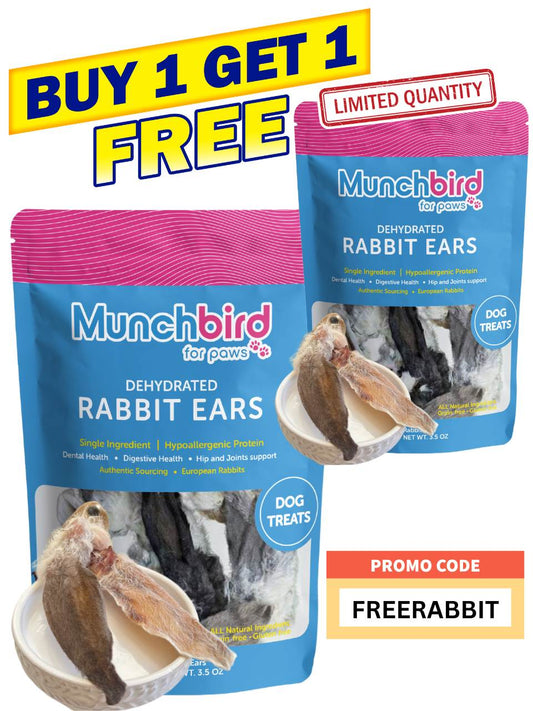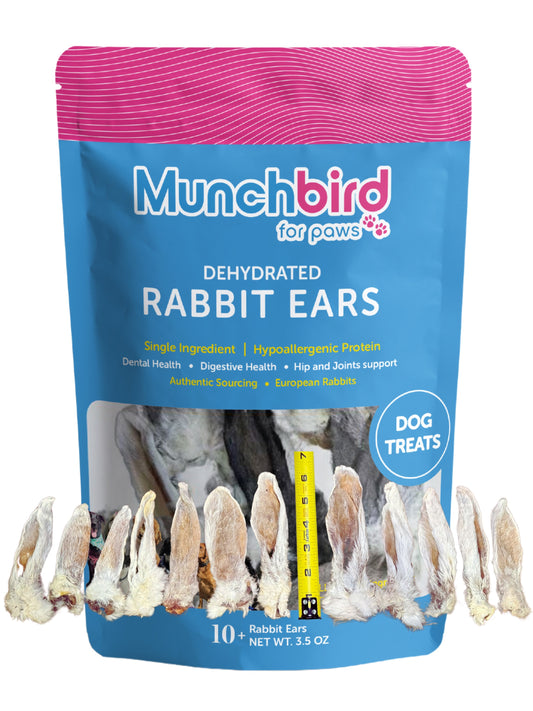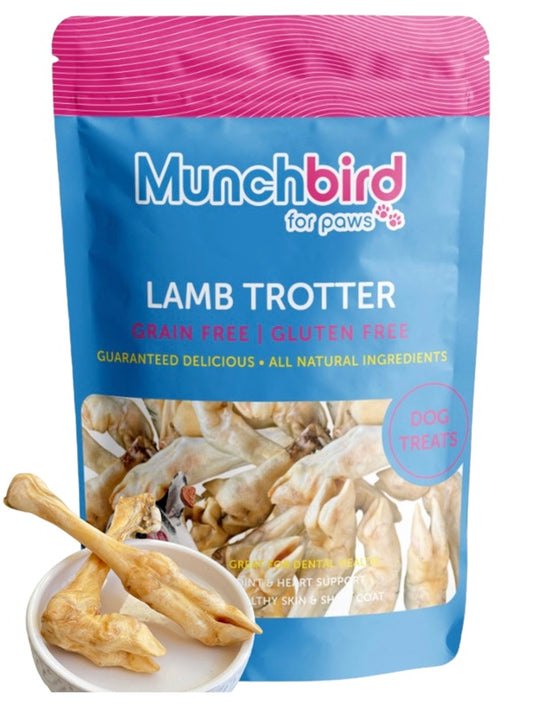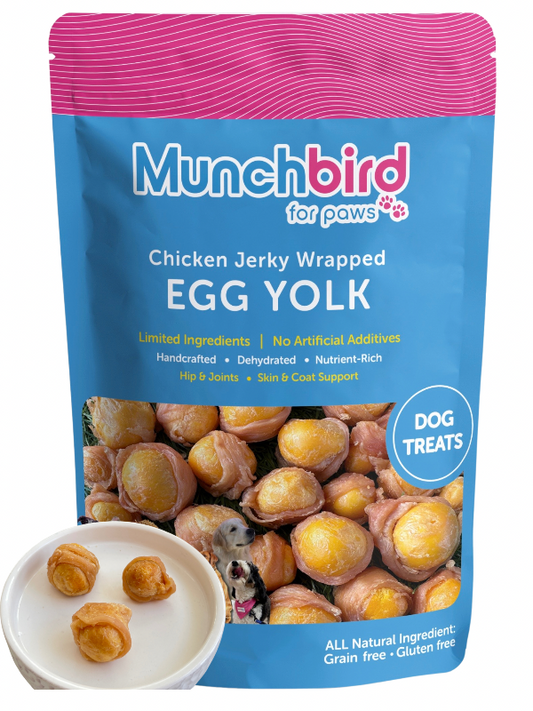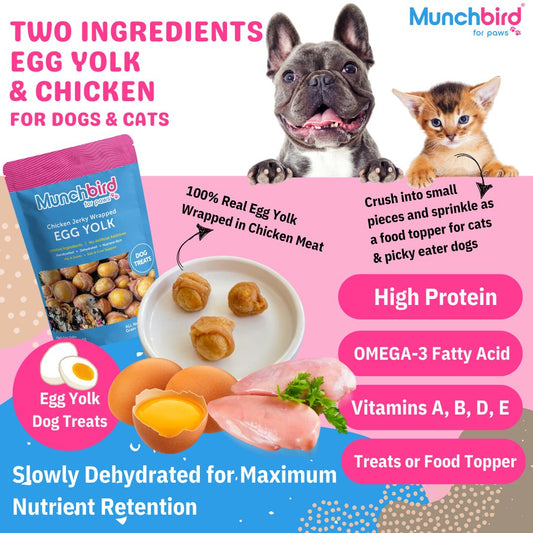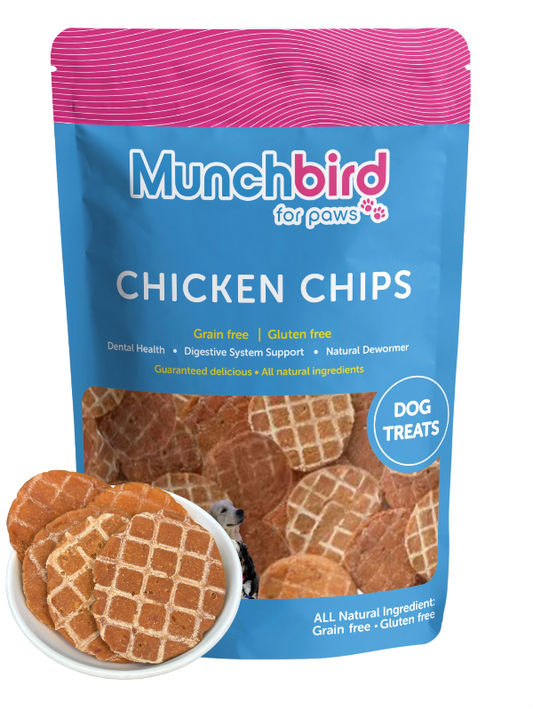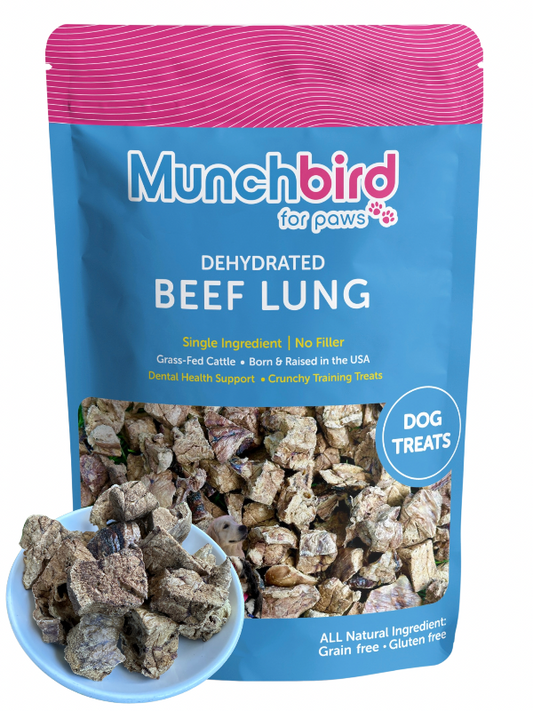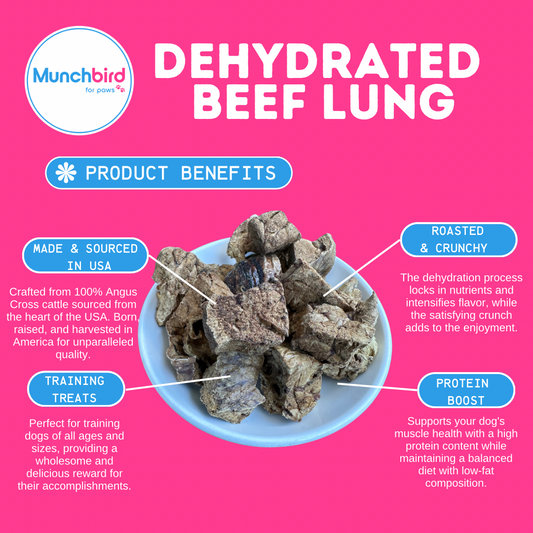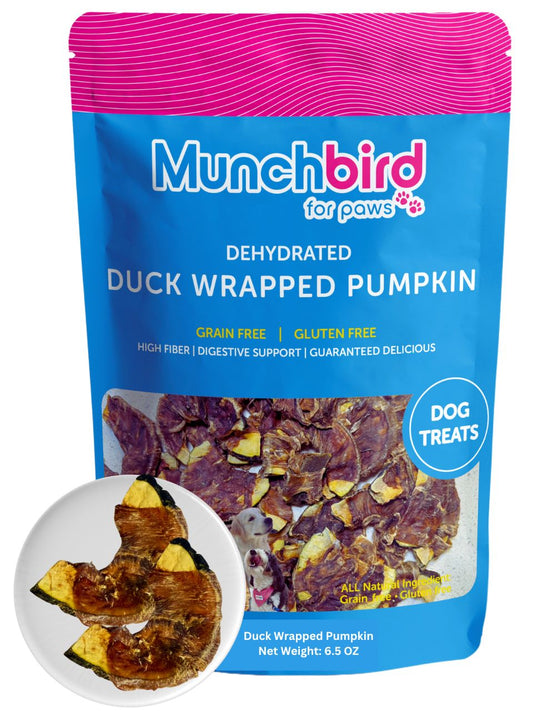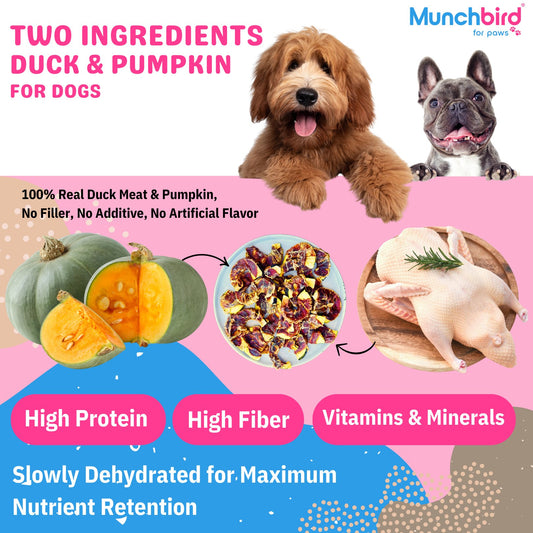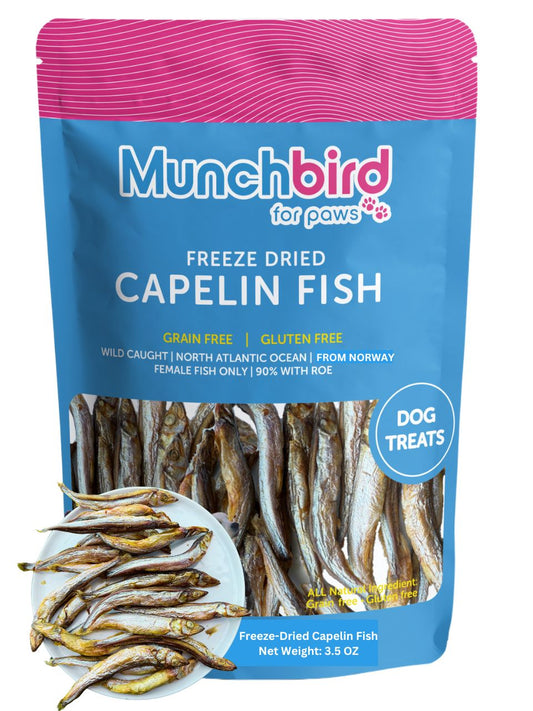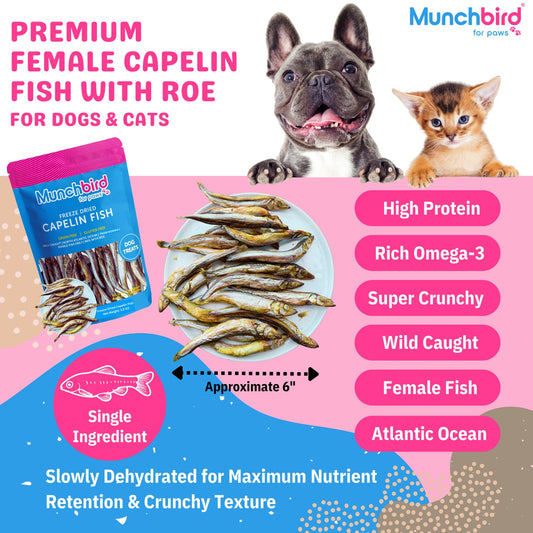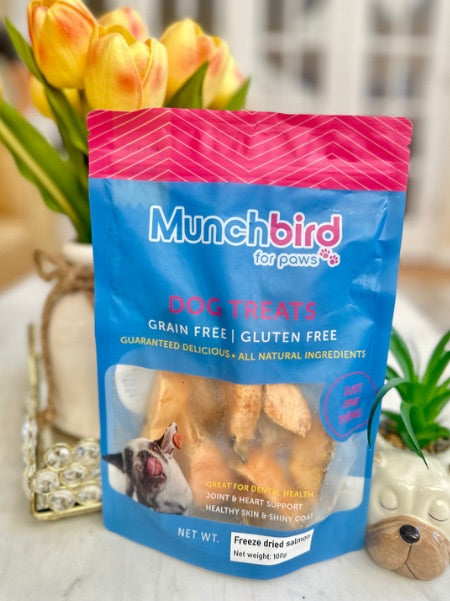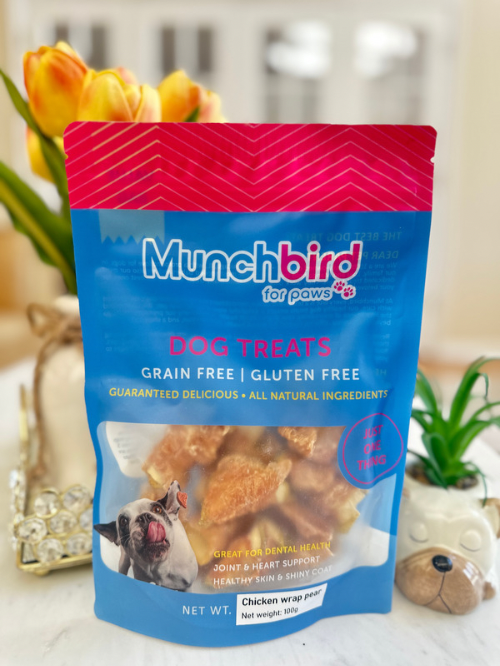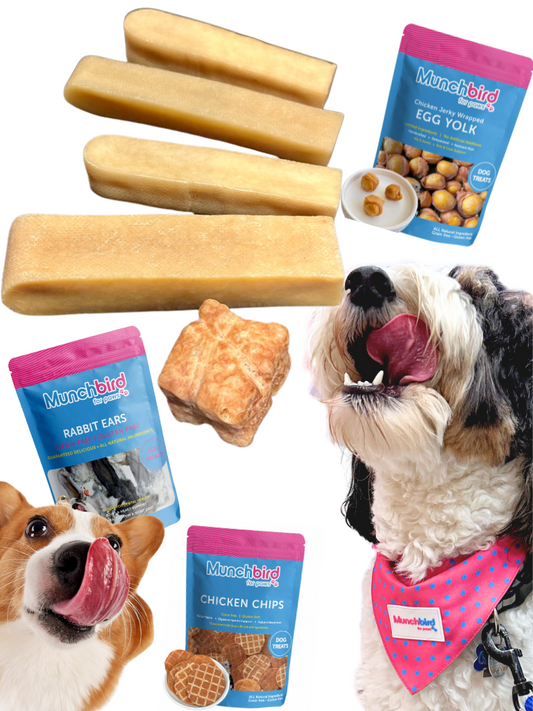Probiotics for Dogs: A Guide to Gut Health
Probiotics have gained popularity in recent years as a way to support digestive health in both humans and pets. But what exactly are probiotics, and do dogs really need them? In this guide, we'll explore the benefits of probiotics for dogs, how to recognize if your dog may benefit from supplementation, and natural sources of probiotics you can incorporate into their diet.
What are Probiotics?
Probiotics are beneficial bacteria that can help maintain a healthy balance of microorganisms in the gut. They play a crucial role in supporting digestion, nutrient absorption, and overall immune function. Probiotics can be found in certain foods, supplements, and over-the-counter products designed specifically for dogs.
Top 10 Signs Your Dog May Need Probiotics
- Digestive Issues: Persistent diarrhea, constipation, or bloating.
- Food Allergies or Sensitivities: Itching, skin irritation, or gastrointestinal discomfort.
- Frequent Infections: Recurrent urinary tract, ear, or skin infections.
- Recent Antibiotic Use: Disruption of gut bacteria balance due to antibiotics.
- Stress or Anxiety: Changes in routine leading to gastrointestinal symptoms.
- Bad Breath: Oral or digestive issues causing persistent bad breath.
- Skin and Coat Problems: Dull, dry coat, excessive shedding, or itching.
- Weight Loss or Poor Appetite: Unexplained weight loss or decreased appetite.
- Chronic Illness: Inflammatory bowel disease (IBD), pancreatitis, or liver disease.
- Senior Dogs: Age-related changes affecting digestion and nutrient absorption.
FAQ: Probiotics for Dogs
Q: What are probiotics, and what do they do? A: Probiotics are beneficial bacteria that help maintain a healthy balance of microorganisms in the gut. They support digestion, nutrient absorption, and immune function.
Q: Should I give my dog probiotics? A: Probiotics can be beneficial for dogs, especially those with digestive issues, food allergies, or recent antibiotic use. Consult with your veterinarian to determine if probiotics are appropriate for your dog.
Q: How do I know if my dog needs a probiotic? A: Signs that your dog may benefit from probiotics include digestive issues, frequent infections, stress or anxiety, and chronic illnesses. Consult with your veterinarian for personalized recommendations.
Q: What over-the-counter probiotic can I give my dog? A: There are several over-the-counter probiotic supplements available for dogs, including powders, chews, and capsules. Look for products specifically formulated for dogs and consult with your veterinarian for guidance.
Q: What foods are good probiotics for dogs? A: Natural sources of probiotics for dogs include yogurt, kefir, fermented vegetables, bone broth, apples, pumpkin, and sweet potatoes.
Incorporating Natural Probiotics into Your Dog's Diet
- Yogurt: Plain, unsweetened yogurt contains beneficial bacteria like lactobacillus.
- Kefir: Fermented milk product rich in probiotics and easily digestible.
- Fermented Vegetables: Sauerkraut, kimchi, or pickles contain probiotic bacteria.
- Bone Broth: Homemade bone broth provides nutrients and supports gut health.
- Apples: High in pectin, a prebiotic that supports gut bacteria growth.
- Pumpkin: Fiber-rich and contains natural enzymes and prebiotics.
- Sweet Potatoes: Fiber and antioxidants promote gut health.
By incorporating these natural probiotics into your dog's diet, you can help support their digestive health and overall well-being.
Here are some recommended probiotic chews for dogs:
- Zesty Paws Probiotic Bites: These soft chews contain a blend of probiotics, prebiotics, and digestive enzymes to support digestive health and immune function in dogs.
- Pawfectchow Probiotics for Dogs: These chicken-flavored chews are formulated with probiotics, pumpkin, and digestive enzymes to promote healthy digestion and nutrient absorption in dogs of all ages.
- PetHonesty Probiotics for Dogs: These tasty chews are made with natural ingredients, including probiotics, pumpkin, and natural fibers, to support digestive health, immunity, and allergy relief in dogs.
- VetriScience Laboratories Probiotic Everyday Bite-Sized Chews: These bite-sized chews contain a blend of prebiotics and probiotics to promote digestive balance, support immune function, and maintain overall health in dogs.
- NaturVet Digestive Enzymes Plus Probiotic Soft Chews: These soft chews combine digestive enzymes and probiotics to support healthy digestion, nutrient absorption, and immune function in dogs.
Remember to consult with your veterinarian before starting any new supplements or treats for your dog, especially if they have any existing health conditions or are on medications.
In conclusion, probiotics can be beneficial for dogs, especially those with digestive issues or recent antibiotic use. By recognizing the signs that your dog may benefit from probiotics and incorporating natural sources into their diet, you can help support their gut health and overall vitality. Always consult with your veterinarian before starting any new supplements or making significant changes to your dog's diet.

